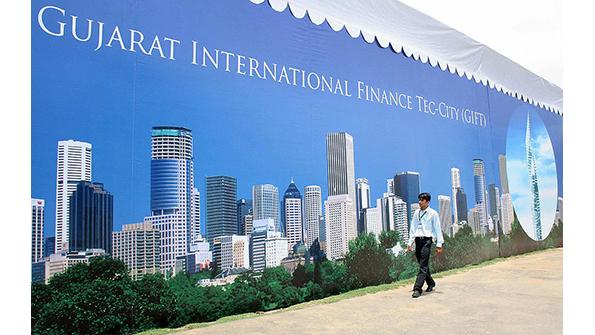Opinion: Can India Compete As Global Aircraft Leasing And Finance Hub?

The Indian aviation industry had close to 190 million passengers traveling through about 100 airports pre-pandemic. To support the high volume, domestic carriers have been adding an average 75-100 aircraft each year, with leasing the preferred approach. In India, more than 75% of private carriers’ aircraft are leased, compared to 52-53% in the rest of the world.
However, even before the headwinds of the pandemic, there was one hitch for India. Close to 80% of India’s air traffic is domestic. This creates a significant financial challenge for the industry: Revenues are in Indian rupees while the main costs—fuel and leases—are in U.S. dollars, which typically appreciate during oil shocks. In addition, under the Indian leases accounting standard, IND AS116, operating leases need to be capitalized, and any changes must be passed via income statement. This triple threat of oil shocks, increased dollar cost of leases and changes to operating leases cuts into the already thin industry margins.

These challenges will be compounded by the rate and scale of future growth. The Indian aviation industry is expected to grow sixfold to 1.1 billion passengers in the next 20 years. The civil aviation minister says that in the next two decades, India will need 1,750-2,100 aircraft, at a cost of over $5 billion, to meet the growth potential of the domestic aviation sector.
GIFT That Keeps On Giving
To address some of these issues, in late 2020, the Indian government announced plans for a stamp-duty exemption for aircraft leasing companies established at Gujarat International Finance Tec-City (GIFT City) in the country’s International Financial Service Centre (IFSC). This, along with other measures, constitutes a significant statement of intent to seize the opportunity to position India as the globe’s next aircraft leasing and finance hub—a challenger to established jurisdictions such as Ireland, Hong Kong and Singapore.
The Indian government hopes that by establishing an aviation hub at GIFT City, it will encourage a self-reliant aviation industry, create jobs and attract further international investors to GIFT, helping to position it as the IFSC of choice. In addition to the efficiency of having a single-point regulatory body for financial services, the GIFT IFSC will provide tax benefits and flexibility in foreign currency transactions, making it well-suited to host the aircraft finance industry.
The work on establishing an aviation hub in GIFT City started in 2019 with a draft vision document committing to establishing a best-in-class aviation-finance hub. The “Framework for Aircraft Operating Lease” allows leasing companies to set up a company in India, structured either as a limited liability partnership or a trust, and registered with the IFSC authority as a lessor. Under this framework, a “lessor” can provide aircraft or helicopters and theirs parts under various arrangements, including sale and leaseback, purchase and transfer.
A lessor must have reserves of at least $200,000 (or the equivalent in a foreign currency), according to the framework, and undertake transactions in foreign currency, although it can maintain an Indian rupee account for the purpose of paying local administrative expenses. It is also expected that a registered lessor will submit filings to the IFSC Authority on an annual basis. In October 2020, an aircraft lease was designated as a “financial product” that can be offered by entities set up in IFSCs in India.
In February 2021, as part of the budget, the Indian finance minister announced specific tax incentives encouraging foreign entities to set up in GIFT City, including capital gains tax holidays for leasing companies and tax exemptions on lease rentals. As a result of the measures, aircraft leasing and finance companies can immediately begin preparations to set up in GIFT City.
These new measures are already beginning to pay dividends. So far, two global aircraft financing and leasing companies and two domestic aviation firms have announced that they will establish aircraft leasing arms at GIFT City: Irish firm Acumen Aviation and UK-headquartered Investec Aviation Finance as well as the domestic companies Vman Aero and private jet aggregator JetSetGo Aviation Services. SpiceJet is also said to be considering leasing seaplanes, and Alliance Air is planning to lease two aircraft via GIFT City. Several banks, including the State Bank of India, are reported to be in conversations with the government regarding their future role in GIFT City, too.
What next?
While India’s industry is addressing financing barriers through GIFT City and already has a good engineering talent base for MRO, the challenge of talent still remains. These important initiatives will also create highly skilled jobs across the value chain, including in financing and asset management, and India needs to ensure it can meet this demand. Existing measures such as infrastructure, an accommodative tax regime and a culture of innovation need to be matched with investment in creating a deep pool of local talent.
The potential of India’s aviation industry is largely untapped; huge growth opportunities loom. It is important that industry stakeholders engage and collaborate with policymakers to implement efficient measures that create a supportive ecosystem and boost India’s role in the global aviation finance industry.
Mandar Mhatre is managing director at Apex Group, a global financial
services provider in India.




